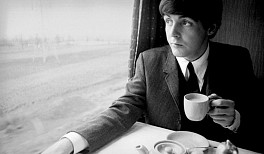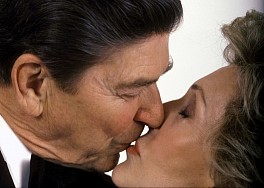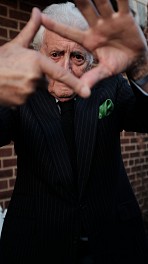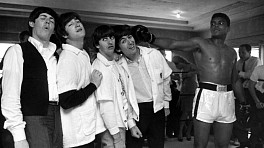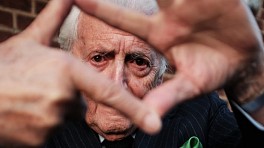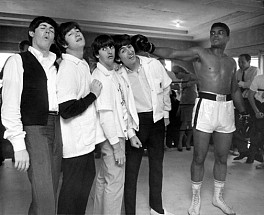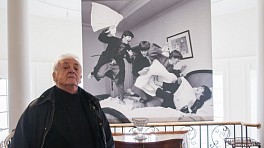Not all exceptional photographers live rarefied lives, some toil in the vineyards and take spectacular pictures again and again and again. Such is the case with Harry Benson, who has been doing it for 60 years and has no intention of stopping.
But as the intriguing documentary "Harry Benson: Shoot First" demonstrates, the fact that an art-for-art's sake modus operandi is alien to Benson makes his work and the personality and philosophy behind it more compelling than they would otherwise be.
A commercial photographer almost without peer, Benson is best known for his 1964 portraits of the Beatles, shots of them pillow fighting in a Paris hotel room and clowning around with Muhammad Ali among many others.
But as demonstrated by directors Justin Bare and Matthew Miele, who previously collaborated on the charming "Scatter My Ashes at Bergdof's," to think of Benson only in connection with the Beatles is to seriously underestimate what he is capable of doing.
For one thing, Benson has shot an astonishing range of celebrities, from Yogi Berra at his ease to the society revelers at Truman Capote’s legendary Black and White Ball to the most personal portrait of Bill and Hillary Clinton you've ever seen.
Personally gregarious, Benson turns out to have a special affinity for loners, creating images of unparalleled intimacy with reclusive chess champion Bobby Fischer, Michael Jackson in his Neverland Ranch, even the distant Johnny Carson.
In fact, when football star Joe Namath swore he'd never let anyone photograph his bachelor apartment, Benson made it happen after he convinced Carson to call Namath on his behalf.
But Benson is hardly just a glossy celebrity photographer. Directors Bare and Miele provide examples of his evocative work on impoverished Glasgow, the American civil rights movement and refugee camps in Somalia. In fact, the only thing Benson refuses to do is shoot in the tame environment of a studio.
"Shoot First" does more than display these images, it details how a poor boy from the Scottish town of Troon who left school at age 13 managed to take those pictures and talks about some of the issues they raise.
Two factors are key in Benson's success, starting with his commanding personal magic, which boldface names from Donald Trump to Vogue's Andre Leon Talley (who says "he could charm the snake out of the tree") testify to.
Equally important is Benson's phenomenal drive and ambition honed during his career's early days in the hyper-competitive newspaper world of London's Fleet Street. "He always says 'opportunity strikes like an express train,'" one of his son-in-laws says, and Benson is notorious in his family for making sure that work always comes first.
Finally, and perhaps most interesting, is Benson's ironclad belief that when you are on assignment, you take the picture without qualm or question because you have an obligation to document what is in front of you.
Because Benson was with Robert F. Kennedy the night he was assassinated, that credo has lead to some of his most controversial photos, including one of Ethel Kennedy raising her hand to try to block his lens. Benson is unapologetic about his shots to this day, stating flatly, "ethics are an excuse if you don't have the guts."
None of this would matter if Benson were not so preternaturally gifted, capable of one-off photos like a haunting next-day shot of a boy who missed a plane ride that took the lives of all his school classmates.
"He can shoot fast and make art," a friend says, and "Harry Benson: Shoot First" makes that point again and again.
Read More >>

